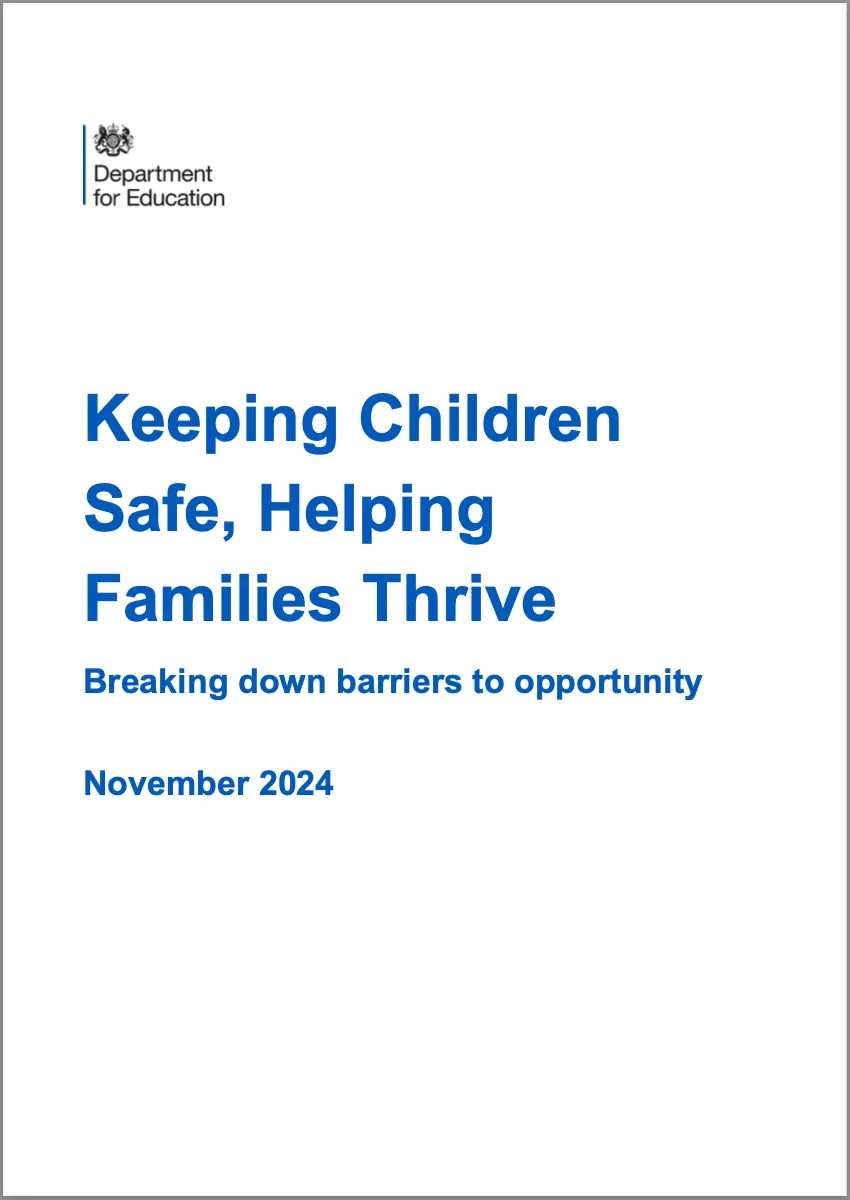
Our vision for the system
Children’s social care has the ability to transform lives. At its best, it allows professionals to spend meaningful time helping families, and enables children to thrive and have the best life chances. It allows extended family members the space and resources to actively participate in a child’s upbringing, and provides high quality foster carers, adopters and children’s home places which give children who cannot remain at home the space they need to recover from childhood trauma, abuse and neglect. Children’s social care also has a vital role in supporting the wellbeing of disabled children and their families: from provision of early help and short-term community-based short breaks to longer-term plans of regular care and support.
Over the last three decades we have seen incremental progress, collective learning and improving practice across children’s social care. The introduction of Youth Offending Teams, the Sure Start children’s centres, and Every Child Matters kickstarted far greater prioritisation of early intervention and multi-agency working. More recently, we have seen national and local government working to innovate together through the Strengthening Families, Protecting Children (SFPC) programme and the launch of the Families First for Children (FFC) Pathfinder programme. Both of these programmes draw together reforms across family help and child protection. These reforms, as well as more than £700 million additional investment since the publication of the Independent Review of Children’s Social Care, have enabled many local authorities to safely reduce the number of children in care and improve the support offer available to families. We have also seen significant improvements in the number of local authority children’s services rated ‘good’ or ‘outstanding’ by Ofsted, with a 20% reduction in services rated ‘inadequate’ or ‘requires improvement’ since 2022. However, we must recognise the challenges that remain.
Firstly, far too many children grow up in poverty and in households that struggle to afford the basic necessities which provide a secure home environment. Some families are particularly vulnerable. For example, poverty rates are higher for people living in families that include a disabled adult or child1. We must build a country where background is no barrier. Children must have the best start in life irrespective of their family’s financial situation. They simply cannot achieve and thrive if they are facing poverty that can leave them going to school hungry or living in unheated homes. That is why we have already established a new Child Poverty Taskforce and are taking a cross- government approach to tackling child poverty, alongside expanding free breakfast clubs in every primary school so all children are able to learn and succeed.
The external landscape has also fundamentally changed. There are several factors which might mean children are unable to grow up in a safe and loving home. An increase of online harms, rising mental health challenges, the prevalence of domestic abuse and addiction, extra familial harms, and an increase in serious youth violence, gang culture and knife crime – to name but a few. These factors will form important strands of our better joined up missions-led approach to government. For example, through the Opportunity and Safer Streets missions, we must ensure a cross-government focus on tackling violence against women, and improve national oversight on multi-agency working to protect children. We must also tackle the inequalities that children encounter too. We recognise there is much more to do. Read the report for what we propose.